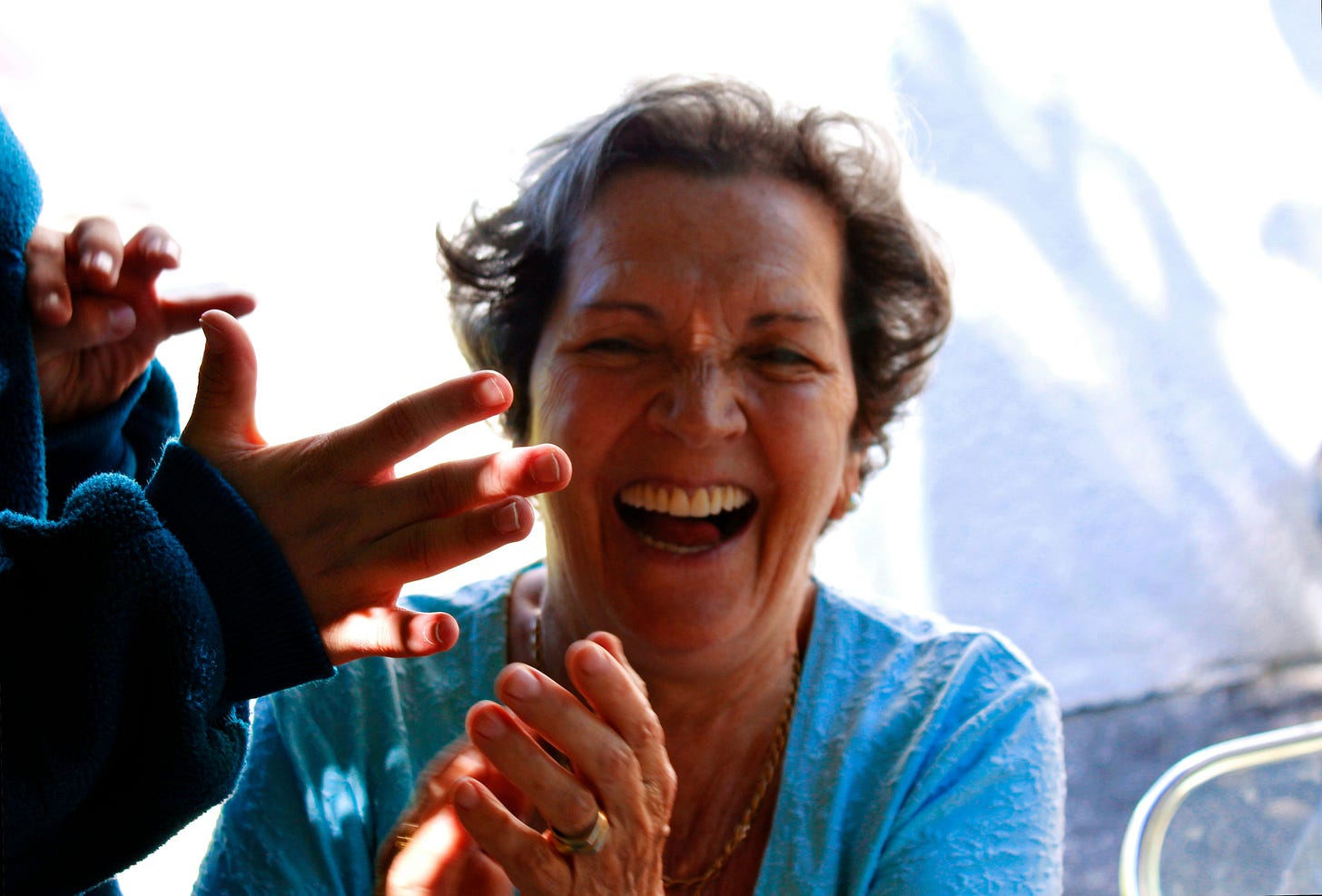If You're Happy and You Know It
Homily for Sunday, September 1, 2024: 22nd Sunday in Ordinary Time
If you’re happy and you know it, clap your hands!
I bet we all have some memory of this one.
If you’re happy and you know it, clap your hands!

This next part I do remember as a kid noticing that there were two different ways which different people would sing it:
If you’re happy and you know it then your face will surely show it …
… was one way. The other way was:
If you’re happy and you know it and you really want to show it …
If you’re happy and you know it, clap your hands!
And it occurred to me … even as a kid I thought about this sort of thing … it occurred to me that these two versions of the song dealt with two different ways of expressing how we’re feeling.
The first says that if you’re happy and you know it, your face will surely show it! A feeling so strong and compelling that we can’t help but express it in some physical way.
The second version suggests that even if you don’t have that strong physiological compulsion, even if your feelings don’t show so readily on your face, you can still use your physicality, gestures and reactions, to let people know how you’re feeling.
A few years ago I read about a study that suggested that just the act of smiling can actually improve how a person is feeling. Our physicality can effect our moods.
It’s an interesting finding, and almost Sacramental. Our worship is centered on this reality of outward signs that both signify and convey and inward grace.
Because we hold that at the basic, fundamental level of our human nature, we are created as a unity of body and soul.
We are not, as some would say, spiritual beings who only temporarily inhabit this flesh-suit. As Catholics we look forward to the resurrection of the dead. We believe that death – that the separation of body and soul -- is actually the temporary state. We are made for eternal life as a unity of spirit and flesh.
That is why our religion is so sacramental, so physical, so infused with smells and bells and gesture and posture, physical acts that can help us remember the reverence of the moment.
This is why Jesus calls out the Pharisees in today’s Gospel, for their concern for outward appearances with no regard for inward disposition. He calls them hypocrites, who separate the physical actions from their spiritual significance, who honor God with their lips but their hearts are far from him.
They still clap their hands but give no thought of happiness.
They teach as doctrine human precepts – to belabor the metaphor a bit more, they make the hand-clapping an end in itself, so that the happiness becomes irrelevant.
But God desires our happiness. God wants our spiritual fulfillment. He wants us in a relationship to Him.
And everything we do here is to that end. All our liturgical gestures and postures and actions should draw us into that relationship within the Liturgy.
As my old college priest once explained, we stand to praise God. We kneel to show reverence. And we sit down to fall asleep. (So wake up now, I’m almost finished.)
We bow or genuflect in the presence of Our Lord in the Eucharist. And before we come forward to receive Him, we turn and acknowledge Him and greet Him present within this assembly. Because if we can’t recognize Christ in our neighbors, we can never truly know Him in the Eucharist.
There is a temptation – especially as we get deeper into the muck of another election season – a temptation to want to remake the world into our vision of the Kingdom of Heaven on Earth.
But what our readings today remind us is that we are called first and foremost to remake ourselves. To change our inner selves, to get rid of the evil thoughts, unchastity, theft, murder, adultery, greed, malice, deceit, licentiousness, envy, blasphemy, arrogance, and folly within ourselves; to invite Christ in to remake our hearts into His own image. To nurture in us what is good and keep safe what He has nurtured.
And then to act on those changes.
Saint James says that religion that is pure and undefiled before God is this: to care for widows and orphans in their affliction, and we must be doers of the Word and not hearers only, deluding ourselves.
It is in our actions in loving service to one another that our faith comes to fruition. And it is only through these outward expressions of inward grace that our world can, eventually, gradually, be remade into to Kingdom of God.

